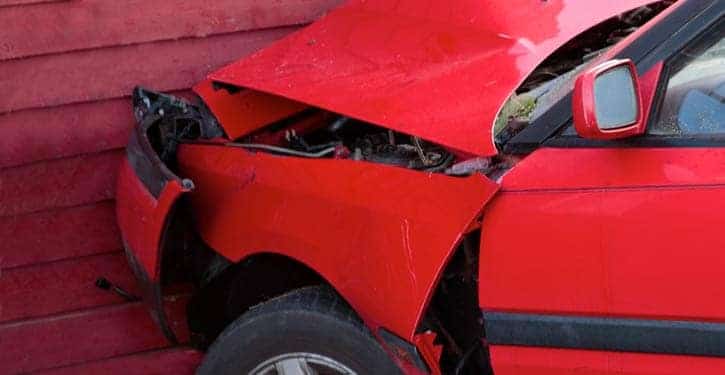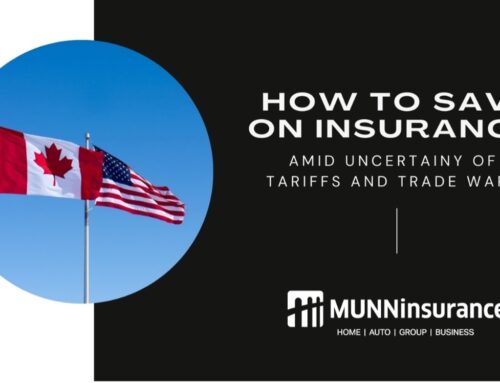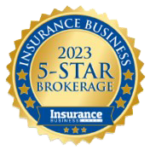Car flies through my garage. Now what?
Quiet night at home when suddenly there is a loud, and I mean loud, crashing sound and the entire house starts to shake. Scary. That’s what happens when a car comes crashing into your garage at the front of your home. It happens. More often than you think. Just Google “car crashes into garage.” Hundreds of pictures.
It happened on a quiet neighborhood in St. John’s just a couple of days ago. Several people have asked us, so how does this all work from an insurance perspective? Does the driver’s insurance company pay? Does the homeowner’s policy apply? Who pays for what? Shouldn’t the driver be responsible? All good questions, and helping you understand all this is where your insurance broker can really help.
If we received a panicked call from a homeowner who had an extra car in their garage, the first thing we would ask is, “Is everyone ok?” Hopefully nobody is hurt. So, when the shock of what has happened begins to fade, the big question becomes, “so what do I do now?”
From a strictly insurance perspective, there are a few things that you need to know. When a vehicle (driverless or otherwise) strikes a home and causes damage, the homeowner has some options in terms of managing the claim. For starters, they can access their own home policy for the repairs, or they can go through the driver’s auto policy.
If the homeowner goes through their own home policy they would likely have the benefit of a guaranteed replacement clause. If so, the repairs are managed by the homeowner’s insurance and completely covered; all the costs of putting everything back to the way it was before the accident would be covered. All associated costs for the repair are guaranteed. This would include fixing or replacing the damaged structure, siding, windows, doors, furniture, drapes, carpet, floors, damaged contents. Everything.
In all likelihood, estimates would be required and the homeowner and the insurance company would agree on the amount for the repairs and replacement based on the estimates provided. A preferred restoration contractor would be selected to do the work or the homeowner might agree to take a cash settlement and coordinate/complete the repairs on their own. The home is then returned to its original condition. As noted, in this scenario all costs would be covered.
If this were a Munn customer, we would engage in this process and help the policyholder manage the claim, holding their hand so to speak throughout the entire process with the insurance company (i.e. Aviva, Intact, RSA or Travelers). Munn would provide advice and make sure that our customer was taken care of at every stage; ensuring the repairs were being completed to the highest standard. There would be regular dialogue and support throughout provided by Munn.
It is important to note, if this was the route taken, there would now be a claim on this home policy. Because a claim could impact the policy in the future, it is important to discuss this with your broker who can advise you of the potential impacts and options available. In this scenario, the homeowner could be responsible for paying the deductible on the policy which would typically be $500 or $1000; but in all likelihood, this would be reimbursed by the auto policy of the car that crashed into the house. But the key here is that the full cost of all the repairs would be completely covered.
The homeowner does have an option to put through a claim directly with the auto insurance company of the driver of the vehicle that caused the damage. However, it is important to note that the coverage available to repair the home in an auto policy may not be the same as the coverage purchased on a homeowner’s policy. If the homeowner elected to go through the drivers auto policy to cover the repairs to the home, the claim settlement would be reviewed under the third party liability coverage of the auto policy. As such, the claim settlement would be the cost of the repairs less the depreciation on things such as windows, doors, siding, etc. For example, if siding has a life expectancy of 20 years and the house is 10 years old, the settlement for the siding would cover just 50% of the cost for the siding. Same applies to windows and doors. In most cases, the impact of the depreciation would be such that going through the driver’s auto policy would not make financial sense. But best to get advice from your broker.
Munn is an insurance broker, and we are your advocate. A broker will provide advice and a choice of policies from several insurance companies; working with you to find the one that is best for you. The insurance company (i.e. Aviva, Intact, RSA, or Travelers) manufactures the policy, defines the coverage and sets the price. It is also the insurance company that oversees the claims process, setting terms, defining the process and making the decisions on the settlement. If you are not working with a broker, you should.
A good broker will help you understand these terms and policies and provide advice on how best to proceed; even help you throughout a claim. So make sure you call your broker and get the advice and support you need to make the best decisions; before a car flies through your garage!
If you would like more information or if you have any questions on your home or auto insurance, please contact Munn Insurance at 855-726-8627 today.
Related News
Recent News
How to Save on Insurance Amid Uncertainty of Tariffs and Trade Wars
In today’s global economy, trade wars and tariffs are a hot topic, and their potential impacts reach beyond just the cost of goods like cars, appliances, and steel. If tensions between countries like Canada and [...]
Get the Best Auto Insurance Quote in Nova Scotia: A Step by Step Guide
When it comes to auto insurance, everyone wants to ensure they’re getting the right coverage at the best price. Whether you're a first-time car owner or a seasoned driver in Nova Scotia, the process of [...]
Unlock Big Savings with Group Insurance Discounts
At Munn Insurance, we know that everyone loves saving money—especially when it comes to home and auto insurance. Did you know that you may qualify for exclusive discounts just by being part of certain groups [...]












